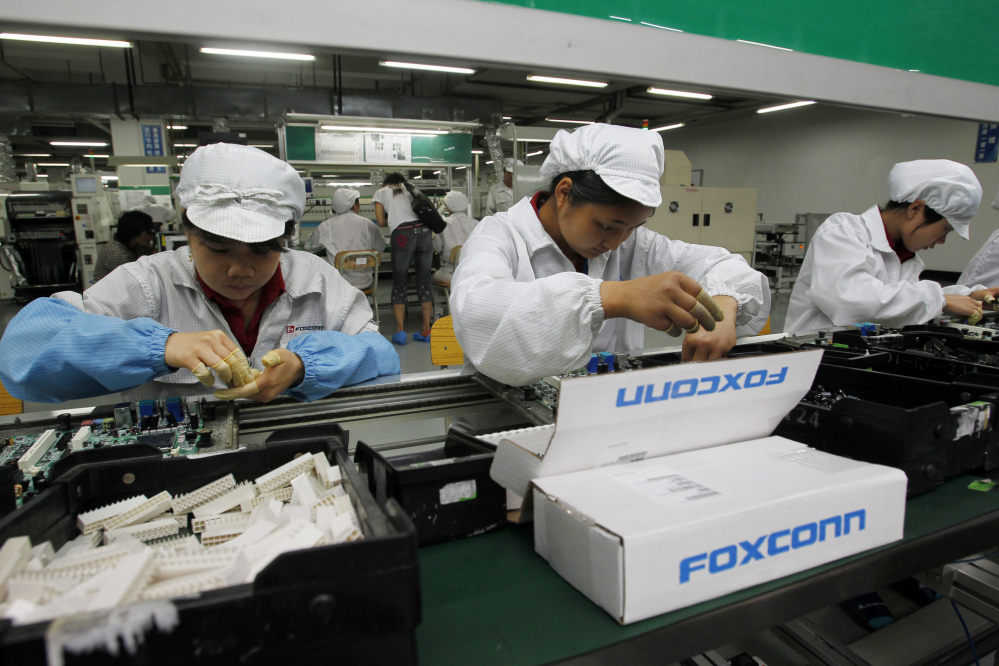MILWAUKEE — A Rust Belt state that built a manufacturing legacy through assembly-line jobs will have to quickly transition to a more highly skilled workforce now that Foxconn has selected Wisconsin as the site of its coveted U.S. electronics plant.
“This will not be your grandfather’s factory,” said Tom Still, president of the Wisconsin Technology Council. “This will be a high-tech facility that will attract workers of various skill levels to produce products that will really define where the economy is going to go for years to come.”
Foxconn, best known for making iPhones and other Apple products in China, announced plans Wednesday to build its first U.S. manufacturing plant in Wisconsin – a decision cheered for its potential to transform the state’s economy. But many questions remain, including the type of jobs the Taiwan-based electronics giant will offer and whether it will follow through on its plans.
Foxconn said its $10 billion factory – at a yet-to-be-determined site in southeastern Wisconsin – will initially bring 3,000 jobs and eventually employ 13,000 workers. It would be a substantial gain for a state that currently has 472,000 manufacturing jobs and is still recovering from factory layoffs – including the closure of a General Motors plant after the 2008 financial crisis.
Foxconn has not said what type of jobs it will offer in order to produce liquid-crystal display panels that are used in televisions and computer screens. But the average salary for the jobs will be nearly $54,000, suggesting some of the higher-end positions will be engineers, software developers and people proficient in computer-assisted design, Still said.
Economists elsewhere note highly skilled postings aren’t always easy to fill.
“For an indicator I would look at Michigan. There’s lots of workers in Michigan and there’s lots of advanced manufacturing jobs in Michigan, and most of them are difficult to fill,” said Stefanie Lenway, dean of the Opus College of Business at the University of St. Thomas in Minneapolis.
Lenway also said that making LCD screens doesn’t involve people “because people create defects on the glass and that’s expensive,” so it’s unclear how many of the jobs will be for assembly workers.
Still said worker shortages for higher-skilled jobs are common around the country and it’s a challenge that Foxconn could’ve faced with any of the other states it was considering – Michigan, Illinois, Indiana, Ohio, Pennsylvania and Texas.
But Wisconsin officials say the state’s higher education system is capable of producing enough employees by the time the plant opens in 2020.
Send questions/comments to the editors.



Success. Please wait for the page to reload. If the page does not reload within 5 seconds, please refresh the page.
Enter your email and password to access comments.
Hi, to comment on stories you must . This profile is in addition to your subscription and website login.
Already have a commenting profile? .
Invalid username/password.
Please check your email to confirm and complete your registration.
Only subscribers are eligible to post comments. Please subscribe or login first for digital access. Here’s why.
Use the form below to reset your password. When you've submitted your account email, we will send an email with a reset code.